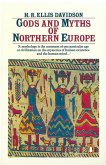Politics Aristotle - One of the fundamental works of Western political thought, Aristotles masterwork is the first systematic treatise on the science of politics. For almost three decades, Carnes Lords justly acclaimed translation has served as the standard English edition. Widely regarded as the most faithful to both the original Greek and Aristotles distinctive style, it is also written in clear, contemporary English.Twenty-three centuries after its compilation, 'The Politics' still has much to contribute to this central question of political science. Aristotle's thorough and carefully argued analysis is based on a study of over 150 city constitutions, covering a huge range of political issues in order to establish which types of constitution are best - both ideally and in particular circumstances - and how they may be maintained. Aristotle's opinions form an essential background to the thinking of philosophers such as Thomas Aquinas, Machiavelli and Jean Bodin and both his premises and arguments raise questions that are as relevant to modern society as they were to the ancient world.
Dieser Download kann aus rechtlichen Gründen nur mit Rechnungsadresse in A, B, BG, CY, CZ, D, DK, EW, E, FIN, F, GR, H, IRL, I, LT, L, LR, M, NL, PL, P, R, S, SLO, SK ausgeliefert werden.









